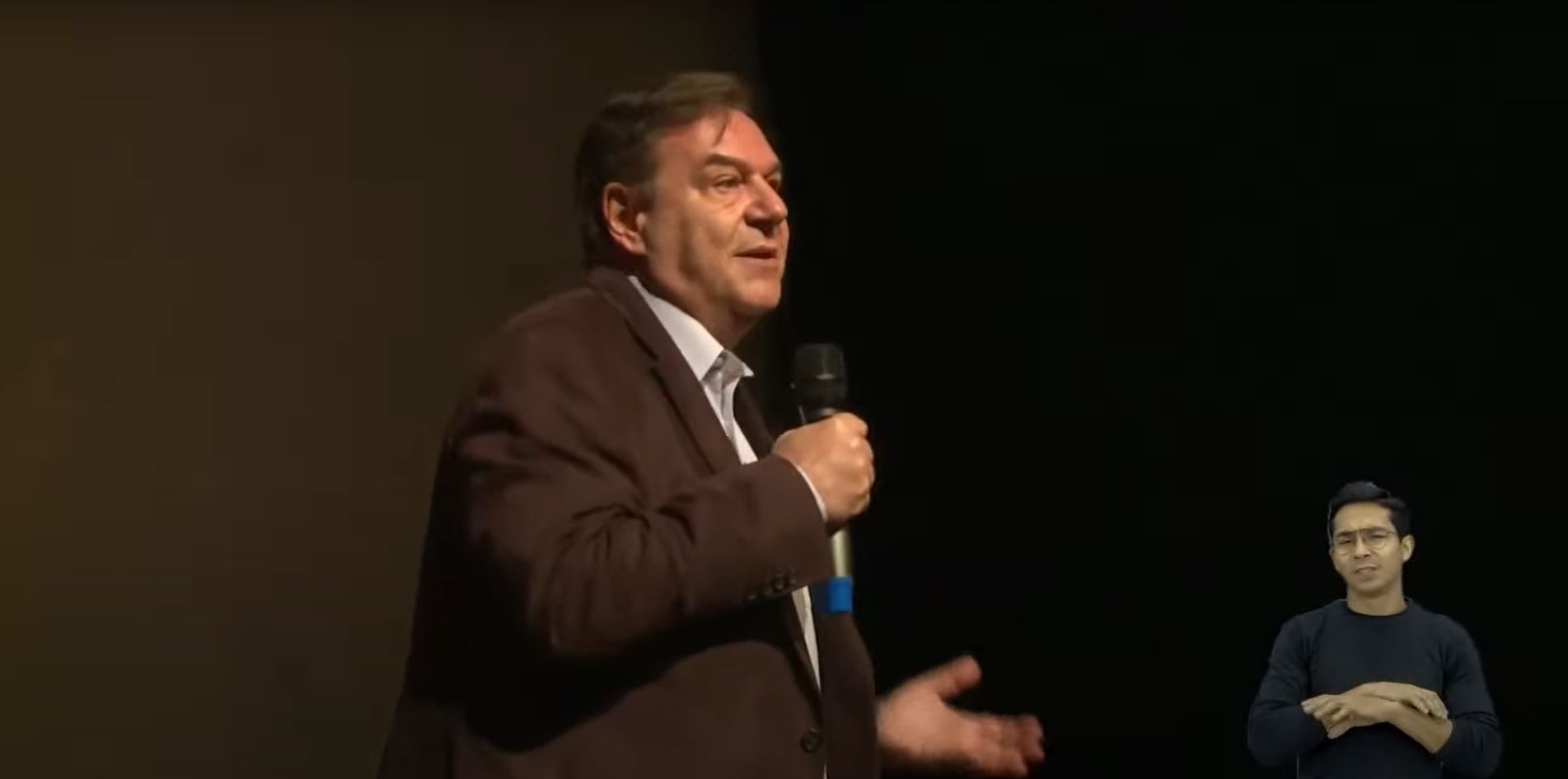 The Director of the World Food Programme (WFP) Centre of Excellence against Hunger in Brazil, Daniel Balaban, represented the institution this Thursday, August 11, at the 1st Meeting of the São Paulo State School Feeding Council, which took place in Guarulhos. The event was aimed at counsellors, nutritionists, directors, educators, school managers, among others involved in school feeding.
The Director of the World Food Programme (WFP) Centre of Excellence against Hunger in Brazil, Daniel Balaban, represented the institution this Thursday, August 11, at the 1st Meeting of the São Paulo State School Feeding Council, which took place in Guarulhos. The event was aimed at counsellors, nutritionists, directors, educators, school managers, among others involved in school feeding.
The São Paulo State School Meals Council (CEAE-SP) is responsible for the quality of the food offered in schools, for monitoring the acceptance of school menus, and for composing the National School Meals Programme (PNAE). The body is composed of a collegiate instituted by the states, Federal District and municipalities, in their respective administrative jurisdictions, which develops a supervisory, permanent, deliberative and advisory role. “There is no PNAE without the Councils, without the CEAEs. The CEAEs are the pillars of the School Feeding Programme,” said Daniel Balaban.
At the opening panel, the president of CEAE-SP, Marcelo Colonato, highlighted the role of school feeding in the fight against hunger during the COVID-19 pandemic, especially that of the schools that remained open to offer school meals to the students. “School feeding was a great ally for people, especially children, not to go hungry,” he said.
 During his presentation, Daniel Balaban recalled the history of the National Fund for Education Development (FNDE), of which he has been president for eight years, and of PNAE as fundamental initiatives to combat food insecurity in the country. According to him, PNAE has won several international awards and stands out for being universal and serving all Brazilian public schools, besides having a concern for healthy eating. “It is so nice to see that Brazil can be an example in several policies, not only in PNAE, but in other policies as well, such as the Human Milk Banks,” he said.
During his presentation, Daniel Balaban recalled the history of the National Fund for Education Development (FNDE), of which he has been president for eight years, and of PNAE as fundamental initiatives to combat food insecurity in the country. According to him, PNAE has won several international awards and stands out for being universal and serving all Brazilian public schools, besides having a concern for healthy eating. “It is so nice to see that Brazil can be an example in several policies, not only in PNAE, but in other policies as well, such as the Human Milk Banks,” he said.
The Director also highlighted the importance of the work of the WFP Centre of Excellence, which helps developing countries, especially in Africa and Asia, to create public policies to combat extreme poverty and food and nutrition insecurity. For Daniel Balaban, hunger is a political problem that has a solution, but efficient public policies are needed to overcome these problems and for the population to get actively involved with the cause.
The event also included lectures by representatives of the Collaborating Center for School Feeding and Nutrition of the Federal University of Rio Grande do Norte (Cecane/UFRN), the Collaborating Center for School Feeding and Nutrition of the Federal University of São Paulo (CECANE/UNIFESP), the Federal Court of Accounts (TCU) of the State of São Paulo and the Regional Council of Nutritionists of the 3rd Region.
Check out the recording of the meeting here.




